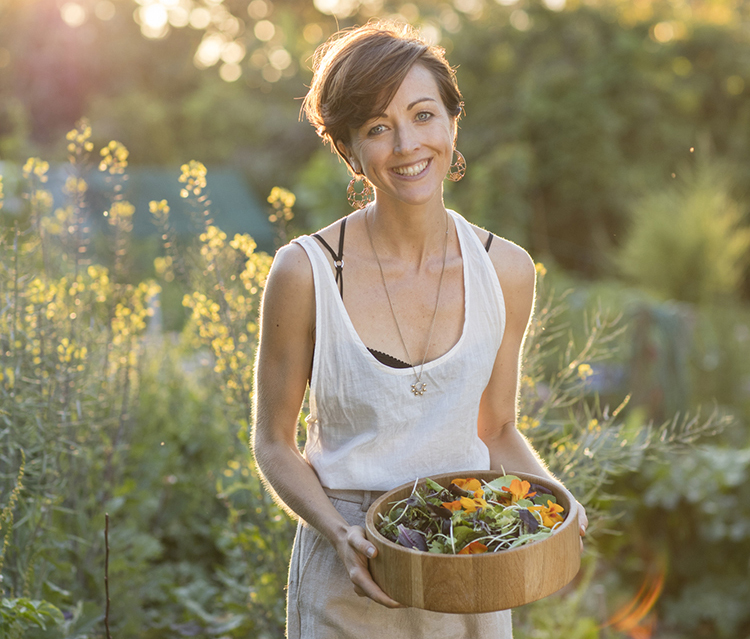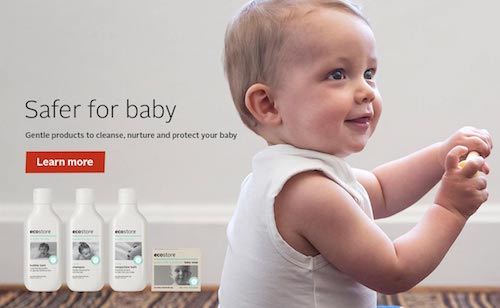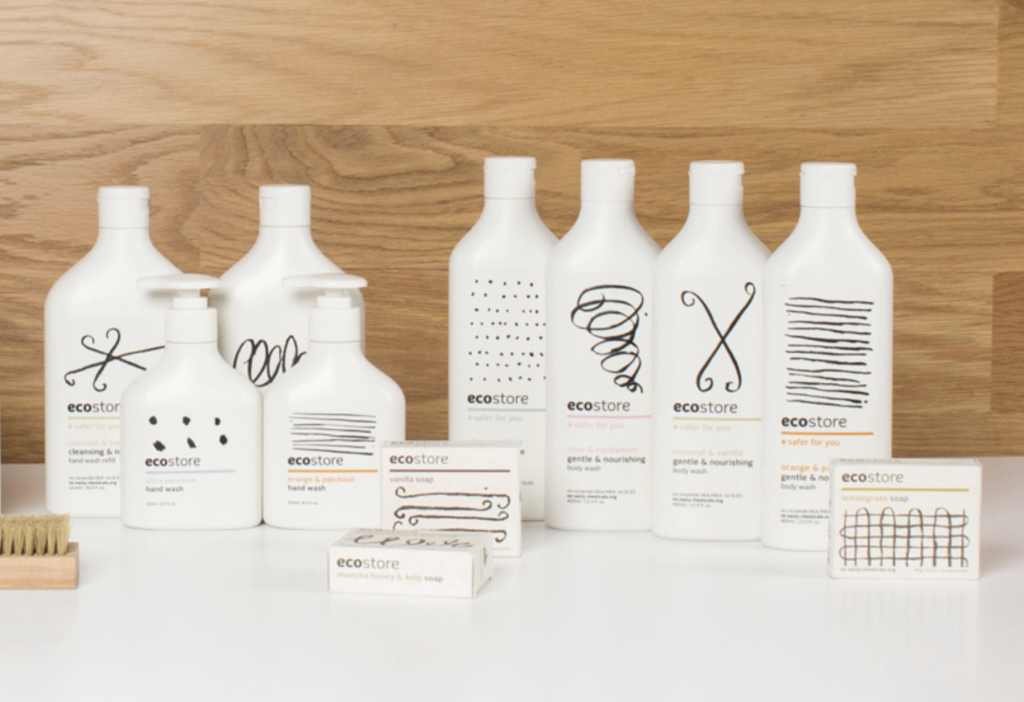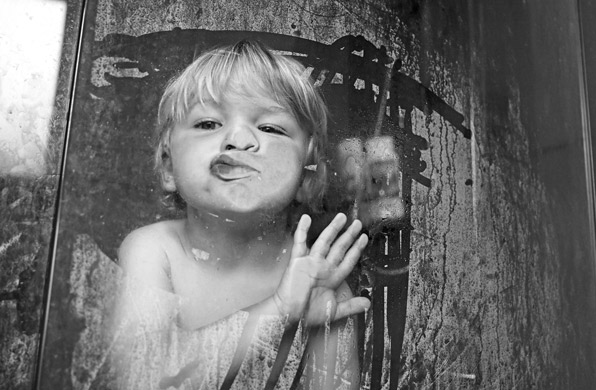Working together is a huge part of creating a better world, because the impact can be so much bigger and more positive. And when companies are making a difference through partnerships, it can inspire us to make decisions that help the environment at the same time. In this article we have the story of Little Bird, Megan May and Jeremy Bennett’s plant-based wholefoods company that’s out to help people feel better and help them cut their impact on the environment.
How did Little Bird grow into a business with so many different parts?
Little Bird started 8 years ago as a stall at a health talk at Michael Park School [in central Auckland]. My husband Jeremy had made up some labels the night before, and I took along the macaroons and grawnola I had been working on for some time, set up a table in the foyer, and within a few hours everything was sold out. There happened to be some buyers there from [health food companies] Ceres and Huckleberry, who kept calling and asking when I would be able to supply them, and so all before I even knew I wanted to have a business, or had a business plan, Little Bird Organics had begun.
All the original stores we stocked were through word of mouth. I’m not the best salesperson, so it was a blessing to start the business this way, otherwise I don’t know if I would have had the confidence to go around selling it in to stores. At the time, these kinds of products were really new to the market. It’s not like it is now, there wasn’t really a category for it. When I did tastings, there was a lot of education involved, I really wasn’t sure if people would be interested in it.
We eventually got a small (large for us at the time) kitchen in Kingsland which also had a garage at the front, which we decided to turn into a little café. We opened our first café on a shoestring, expecting just a handful of customers a day, and it went crazy! The place was busy all the time just 1 week after opening. We were running around just trying to keep up, I was up at the crack of dawn every morning, and staying up till after midnight making cakes for the next day. A year later, we opened our second and larger café with a full offering in Ponsonby, and the following year a third little café in Britomart, which was entirely take out, so people in the city could grab some fresh organic food and cold pressed juices in their lunch break. At the same time, we finally got ourselves a factory so we could start producing more of our original raw and organic macaroons, grawnolas, crackers and clusters for retail. It just didn’t stop! It’s interesting to sit back now and reflect on the moment Little Bird started, and how quickly it has grown from a little stall at a health talk.
During this time, I also had a baby, and authored two cookbooks and a recipe App. The first was an all raw cookbook called The Unbakery, followed by the recipe app, and in September this year I released my second cookbook Little Bird Goodness, which is a combination of cooked and raw foods. It’s been important for me to show people how you can make your own healthy, organic, nutrient dense wholefoods at home. The purpose of Little Bird is to inspire people to get in the kitchen and make foods that make them feel great and have a minimal impact on the environment, and the best way to do that is by showing them how delicious plant based food can be, and how easily they can make it at home for themselves.

What got you interested in nutrition and plant based eating?
It was a combination of things. I grew up on an organic farm, where I was taught a lot about the impact of our food choices on the environment, and our health. Despite having access to great food at home and knowing the impact of my food choices, outside of home I ate a lot of unhealthy foods. These weren’t just unhealthy, they were also foods I was allergic to. I am coeliac, lactose intolerant and very sensitive to sugar, but as a kid you don’t really care so much, you just don’t want to be different.
After completing a degree in environmental sciences, travelling the world for a few years and trying my hand at a few careers, I realised that the biggest impact I could make on the world was through working with food and showing people how to change what’s on their plate. I planned to open my own wholefoods café, and so I went to work as a chef in order to learn everything I could about how to cut it in the industry. Unfortunately, working in a high stress environment and eating all the foods I was allergic to left me incredibly sick. I had adrenal fatigue, melanoma and hormonal problems – my body had had enough.
After several years of being unwell and seeing countless specialists, both alternative and conventional, I discovered raw, plant based eating. Nothing I had tried previously was working, so why not try drinking and eating copious amounts of raw organic greens? It really was amazing, I finally started to get some energy and vitality back, and of course when you get results you want to share your experience with others who may be having similar issues. I had originally set out to create an organic wholefoods business, but through my experience of working as a chef and becoming unwell, I realised that it was also going to be a mostly raw, organic and plant based wholefoods company that made incredibly nutrient dense food, designed to help people feel good.
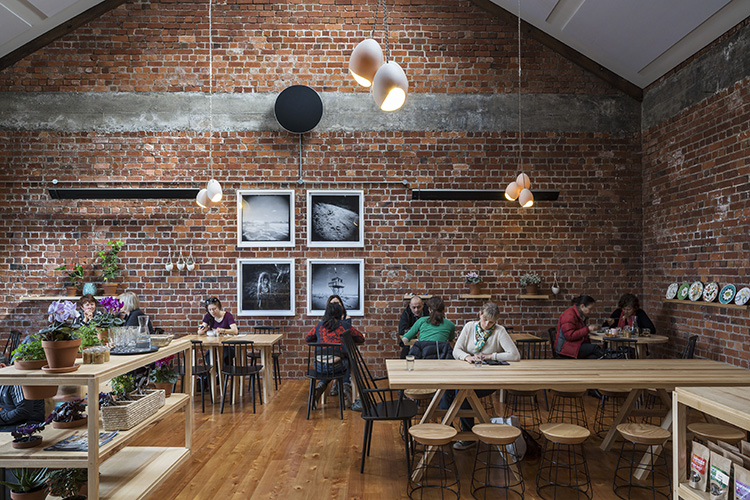
So what are the potential environmental benefits of plant based and organic food?
There are always two parts to this – the first is the importance of reducing our reliance on animals as a food source and moving to a plant based diet. There is an incredible amount of scientific evidence out there that clearly illustrates the destructive impact animal agriculture is having on our environment, being the leading cause of species extinction, deforestation in the Amazon, ocean dead zones, water pollution, greenhouse gas emissions, the list goes on. It’s a system that doesn’t work. We don’t all have to go vegan, but I believe we all do need to drastically reduce our consumption of animal products. We can’t ignore it any longer, our current way of eating and farming is literally killing the planet, and us.
The second part is the importance of organics. If we are only as healthy as the food we eat, then we are only as healthy as the soil that our food is grown in. Organic agriculture is a system that isn’t just about growing food without man-made fertilisers and pesticides, it also takes into account the impact modern day farming has on our soil, surrounding flora, fauna and waterways. We should be farming in a way that is sustainable, and gives back as much as it takes out.
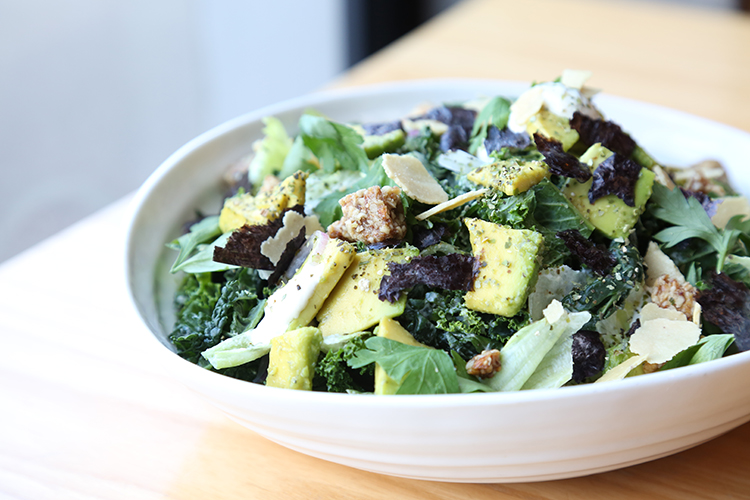
How is Little Bird trying to help create a healthier environment and a better society?
What we put in our mouths each day has a profound impact on the world around us and our own health, and we can choose to eat something that nourishes us or not (I realise not everyone has this choice, but for many of us that do have that choice we should be making it, and working towards making healthy foods accessible to everyone). We use compostable packaging in our cafes, source organic ingredients wherever possible, have a bottle return scheme for our juices rather than putting them in plastic bottles (which would be cheaper and easier), compost our food waste, and are consistently trying to find other ways to reduce our impact. It often takes a little more effort, but a little more effort now reduces the effort needed to remedy the impact of easy unsustainable choices in the future.
We are also currently moving to electric transport. I’m very lucky to be able to drive around in a fully electric Hyundai IONIQ. It’s such a fun experience, and really makes you think about how you drive and consume energy (the car gives you that literal feedback constantly). All the people that live near motorways will eventually have improved air quality, as New Zealand’s electricity is predominantly from renewable sources, the move to electric will have a big impact on our carbon footprint. It’s very exciting.
Have you partnered with anyone who has inspired you and helped make your business bigger than it could be on its own?
There are so many successful and inspiring people out there who have helped us along the way, whether it be a few hours of their time for business advice, connecting us with someone they know, legal or accounting services, or lending us money. It’s amazing how generous people have been, and how much they have believed in us and what we want to achieve, being so incredibly willing to help. All these acts of generosity have inspired us, and helped us grow beyond what we could have done on our own.
Recently, we have been very fortunate to have ecostore founders Melanie and Malcolm Rands come on board. Being one of the original plant based companies, it couldn’t be a better fit. We feel incredibly fortunate to have people with such integrity and experience alongside us, who believe as much as we do in the power of plant based food to create positive change in the world.
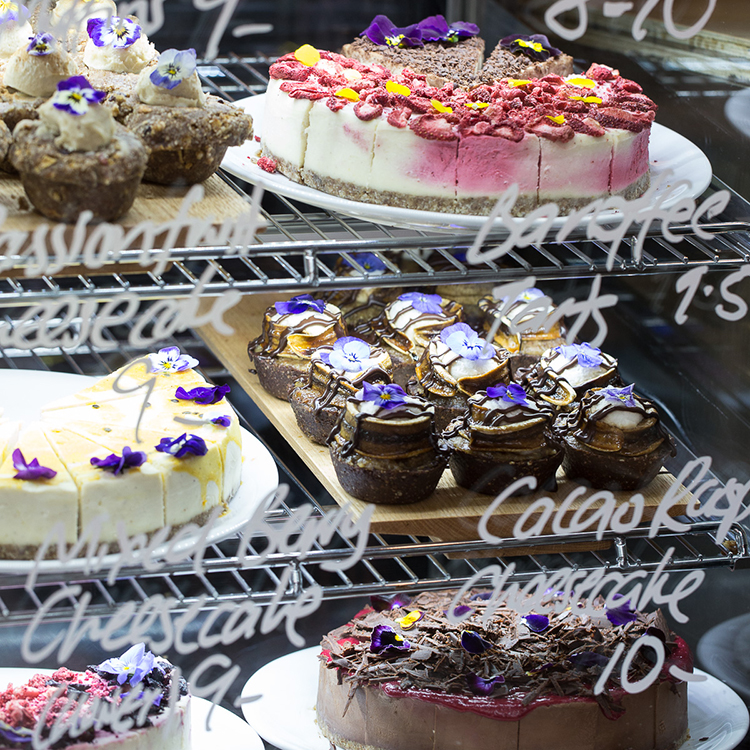
What do you do to make sure you stay well mentally and physically?
In the past few years since having my daughter, I haven’t been as good at the physical aspects of wellness as I used to be. Meditation is one thing that I never skimp on though. It helps keep me healthy both mentally and emotionally. In terms of physically, I try and cycle to work when I don’t need to travel around much during the day. I usually have cold showers in the mornings too, to boost circulation and immunity. Getting up earlier to exercise is still on the to do list… it’s the best time of day to exercise, and sets the tone for the day. With the beautiful weather we are having, and longer days I don’t really have any excuses. I also make sure I have a big green juice or smoothie every morning, this helps set me up for the day ahead feeling energised.
What are your favourite foods and drinks?
I like to ensure I eat an abundance of raw and fermented foods every single day – they are so important for creating a healthy gut. If we have a healthy inner ecosystem, it enables us to get so much more out of our food. We eat things like sauerkraut, kefir, kombucha and fermented pancakes every day, and I have a lot of fermented recipes in my new book.
Do you have a life motto or mantra that you live by?
Anything is possible – nothing is permanent. Collectively small actions can create big change (when done consistently).

